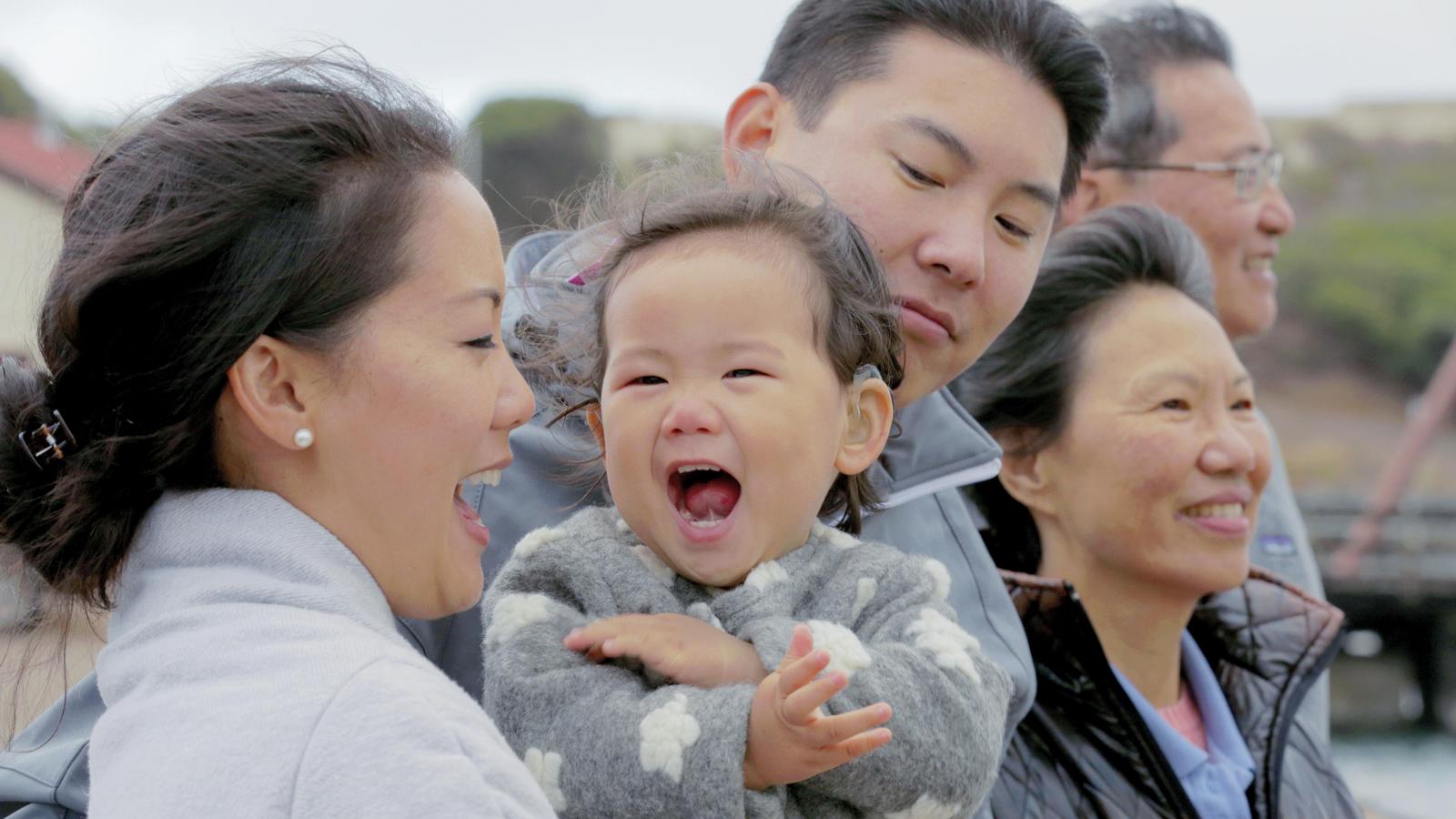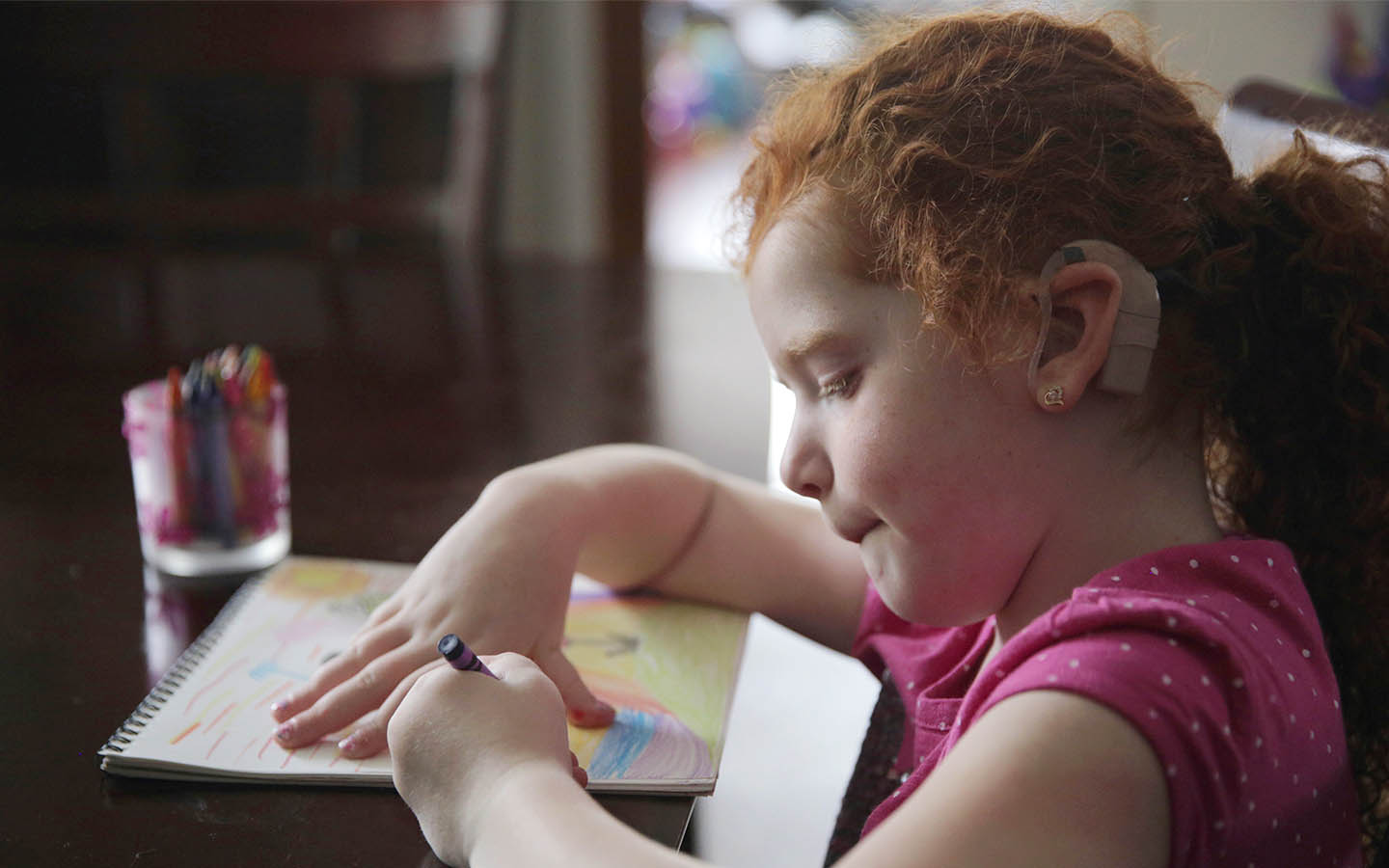How hearing works
Understanding how we treat hearing loss starts with understanding hearing. Learn how hearing works, why we have two ears, and how hearing impacts communication and daily life.

What you'll find on this page
- How our natural hearing works.
- Benefits of being able to hear from both ears.
- How hearing loss affects other areas of life.
How we hear
Hearing is the process of sound travelling through the outer, middle and inner ear. Although sound enters through the ear, it is interpreted by the brain.
Parts of the ear:
- Outer ear - consists of the outer part that you can see (the pinna) and the ear canal
- Middle ear - consists of the eardrum and three tiny connected bones (ossicles), which are often referred to as the hammer, anvil and stirrup
- Inner ear - contains the snail-shaped cochlea and the hearing nerve, as well as semicircular canals that help with balance
Each of these parts of the ear play a critical role in transmitting sound. Your natural hearing depends on them working together and if you have a problem anywhere in the process, you may experience hearing loss.
How our natural hearing works
The auditory system is a complex subject. It's important you understand how nature intended hearing to work and compare that with what happens with a person who has hearing loss.
This knowledge will help you to feel more comfortable and confident that you are making the right choice for you, your child or loved one.
Hearing with both ears
The human body is a network of pairs: we have two eyes, ears, nostrils, arms, hands, feet and legs. The brain uses these pairs to coordinate and improve how the body works.
Similarly, our ears work as a team. We have two ears to help improve our ability to locate sound, distribute volume to better tolerate loud sounds, as well as to enjoy a better quality of sound (like hearing in ‘stereo’). Being able to hear with both ears makes it easier to understand speech and tell where sounds are coming from.1
Hearing, communication and brain function
Hearing is the first line of developing communication skills.
For children, hearing is how they learn to recognize a parent—babies begin to notice sounds while still in the womb. It’s also an important part of learning to talk as children learn by mimicking sounds they hear. Although hearing isn’t the only way we communicate, hearing loss will affect how a person communicates and speaks.
Older people with hearing loss are more likely to develop problems, such as thinking and remembering, compared to those with normal hearing. Because the brain is the interpreter of sound, when someone loses hearing function, the connections in the brain that respond to sound are not reorganized.2-4
As well as brain function and communication, our ears also affect our ability to balance. Those who aren't able to balance are more likely to have falls, which is why it's so important to take care of your ears and your hearing, and to get help when needed.
Disclaimer
Please seek advice from your health professional about treatments for hearing loss. Outcomes may vary, and your health professional will advise you about the factors which could affect your outcome. Always read the instructions for use. Not all products are available in all countries. Please contact your local Cochlear representative for product information.
Views expressed are those of the individual. Consult your health professional to determine if you are a candidate for Cochlear technology.
For a full list of Cochlear’s trademarks, please visit our Terms of Use page.
References
- Litovsky RY, Johnstone PM, Godar SP. Benefits of bilateral cochlear implants and/or hearing aids in children. Int J Audiol. 2006; 45(Suppl): S78-91.
- https://www.hopkinsmedicine.org/news/media/releases/hearing_loss_linked_to_accelerated_brain_tissue_loss_ (accessed Jan. 2014)
- Campbell, J., & Sharma, A. (2014). Cross-modal re-organization in adults with early stage hearing loss. PLoS ONE, 9(2). https://doi.org/10.1371/journal.pone.0090594
- Lin, F. R., Ph, M. D. D., Yaffe, K., Xia, J., Xue, Q., Ph, D., … Simonsick, E. M. (2013). Hearing Loss and Cognitive Decline in Older Adults. JAMA Internal Medicine, 173(4), 293–299. https://doi.org/10.1001/jamainternmed.2013.1868







